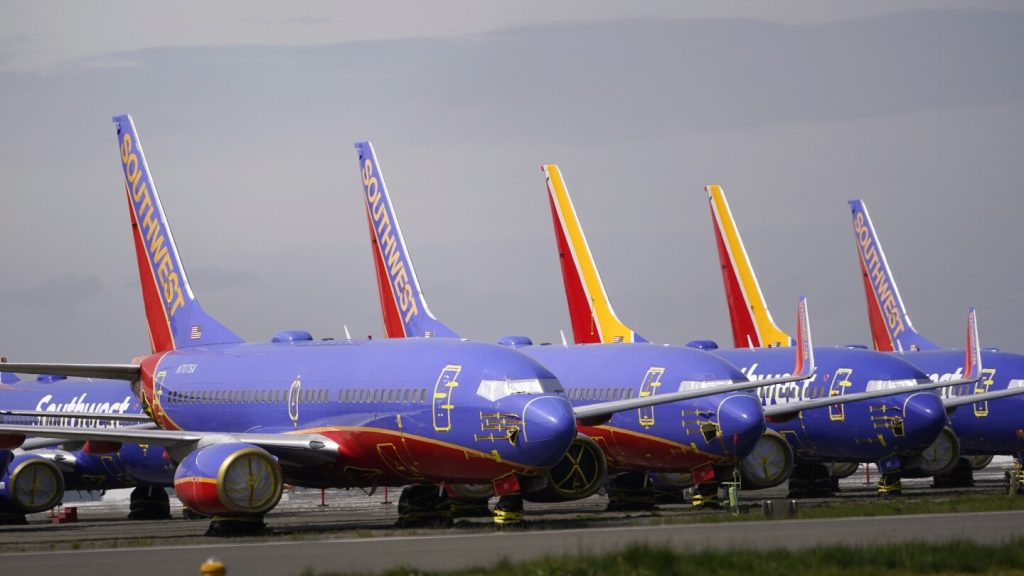Southwest Airlines announced that it will be limiting hiring and discontinuing flights to four airports as it grapples with weak financial results and delays in receiving new planes from Boeing. The airline reported a loss of $231 million in the first quarter, prompting CEO Robert Jordan to take action to address the financial underperformance. Southwest will reduce its workforce by 2,000 employees through attrition, without resorting to furloughs or layoffs. The decision to stop flying to airports like Cozumel, Syracuse, Bellingham, and George Bush Intercontinental Airport in Houston is part of the company’s strategy to focus on more profitable locations and deploy a smaller fleet of planes than originally planned.
Southwest’s plan to cut half of its flights in Atlanta and one-third at O’Hare Airport in Chicago will help the airline navigate through the challenges posed by delays in receiving new aircraft from Boeing. The airline now expects to receive only 20 new 737 Max 8 jets this year, down from the previously expected 46. Boeing is facing production delays following an incident where a door plug blew out of an Alaska Airlines Max 9 aircraft. Southwest’s decision to retire fewer planes will help mitigate the shortage of new aircraft. Despite these setbacks, Southwest remains optimistic about its future prospects and is looking at implementing changes in boarding and seating to improve revenue.
American Airlines also reported a first-quarter loss of $312 million, with labor costs up by 18%. The airline anticipates returning to profitability in the second quarter and expects earnings of $1.15 to $1.45 per share. American had already received hundreds of new planes in recent years, which have helped mitigate the impact of Boeing’s production issues. The airline had ordered eight Boeing Max 10s, but they are not expected to be delivered as planned this year. CEO Robert Isom expressed frustration with Boeing’s challenges and urged the manufacturer to improve its production quality. American has been able to procure new regional jets from Embraer without any issues.
Despite the concerns surrounding Boeing’s safety issues, both American and Southwest airlines have not observed any significant impact on consumer behavior. Southwest, which operates an all-Boeing 737 fleet, indicated that only about 1% of customers who cancel reservations cite fear of flying on the plane model as the reason. These airlines continue to monitor consumer trends related to aircraft types but have not noticed any significant changes in passenger behaviors. While Southwest’s stock saw a decline of 7% following the financial report, American’s stock showed a modest 1.5% gain.
In response to the current financial challenges, Southwest Airlines is taking proactive measures to address its financial underperformance. By limiting hiring, cutting flights to certain airports, and adjusting its fleet plans, the airline aims to streamline operations and improve profitability. American Airlines, despite facing similar challenges, remains focused on returning to profitability in the coming quarters. Both airlines continue to navigate through the impacts of delays in receiving new aircraft from Boeing and remain committed to providing safe and reliable travel experiences for their passengers.


